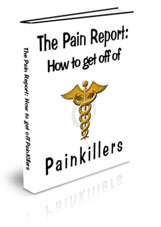Heroin Becomes The Backup To Painkillers
Just a few days before her graduation in 2008 from a Long Island high school, cheerleader and National Honor Society member Natalie Ciappa died. She overdosed on heroin. The sad fact is that Natalie’s death is not an isolated incident and the Internet is filled with stories of users, both young and old, who’ve died from heroin overdoses.
Even more surprising as Natalie’s story illustrates, the majority of today’s heroin users are white, middle-class suburbanites. It is this audience that heroin traffickers are seeking. As evidenced by recent seizures across Tennessee, this state is becoming a prime target for Mexican drug organizations hoping to increase their profits. And Tennessee isn’t the only state in the union they are working on.
The Tennessee General Assembly has recently passed legislation providing additional tools for law enforcement to investigate and prosecute doctor shopping and prescription drug fraud. The increased focus on these crimes and the aggressive pursuit prosecution of these cases involving the abuse of prescription drugs, addicted users are finding it more difficult and way more expensive to feed their addictions to Oxycontin and other painkillers. From the addict’s perspective, the solution to the diminished supply is a less expensive, more readily available alternative. That alternative is heroin.
Many think heroin is ‘no big deal’
According to the DEA based in Nashville, heroin flows into Middle Tennessee from Mexico through the Southwestern states to Tennessee. Due to this availability, the street cost to an addict is relatively cheap. Traffickers find willing consumers for their illegal goods by soliciting addicts near methadone clinics. Selling to addicts leaving these clinics helps the traffickers to generate an expanding client base. As a cheaper alternative to prescription drugs, business is good.
Soliciting clients near methadone clinics is not the only available venue for these heroin dealers. With a seizure of $90,000 worth of heroin in Brentwood earlier this year and another $500,000 heroin confiscation in Dickson County, law enforcement agencies in Metro Nashville’s suburban areas are on alert. The availability of heroin, as well as its relatively low cost when compared to illegally obtained prescription drugs, makes it an appealing alternative to the middle-class, both young and old. In fact, as noted by Robbie Woliver in a 2010 article for Psychology Today, many teens believe that heroin use is “no big deal.”
This cavalier belief by our young people is music to the ears of the Mexican drug organizations. These young people are creating a new generation of heroin addicts. No longer is the stereotypical heroin user viewed as a junkie living on the outskirts of society. Instead, as the availability of heroin increases in our communities, the heroin addict may live next door.
With the majority of heroin coming into Tennessee on our interstate system, law enforcement must continue its interdiction programs on Tennessee highways. In addition, police agencies must work together to identify and stop the flow of heroin into our communities. District attorneys must vigorously pursue prosecutions. And with so many young people now using heroin, educators and parents must be vigilant in monitoring the activities of these young people. Only with a combined community approach, can Tennessee stop the flow of heroin into our state.













